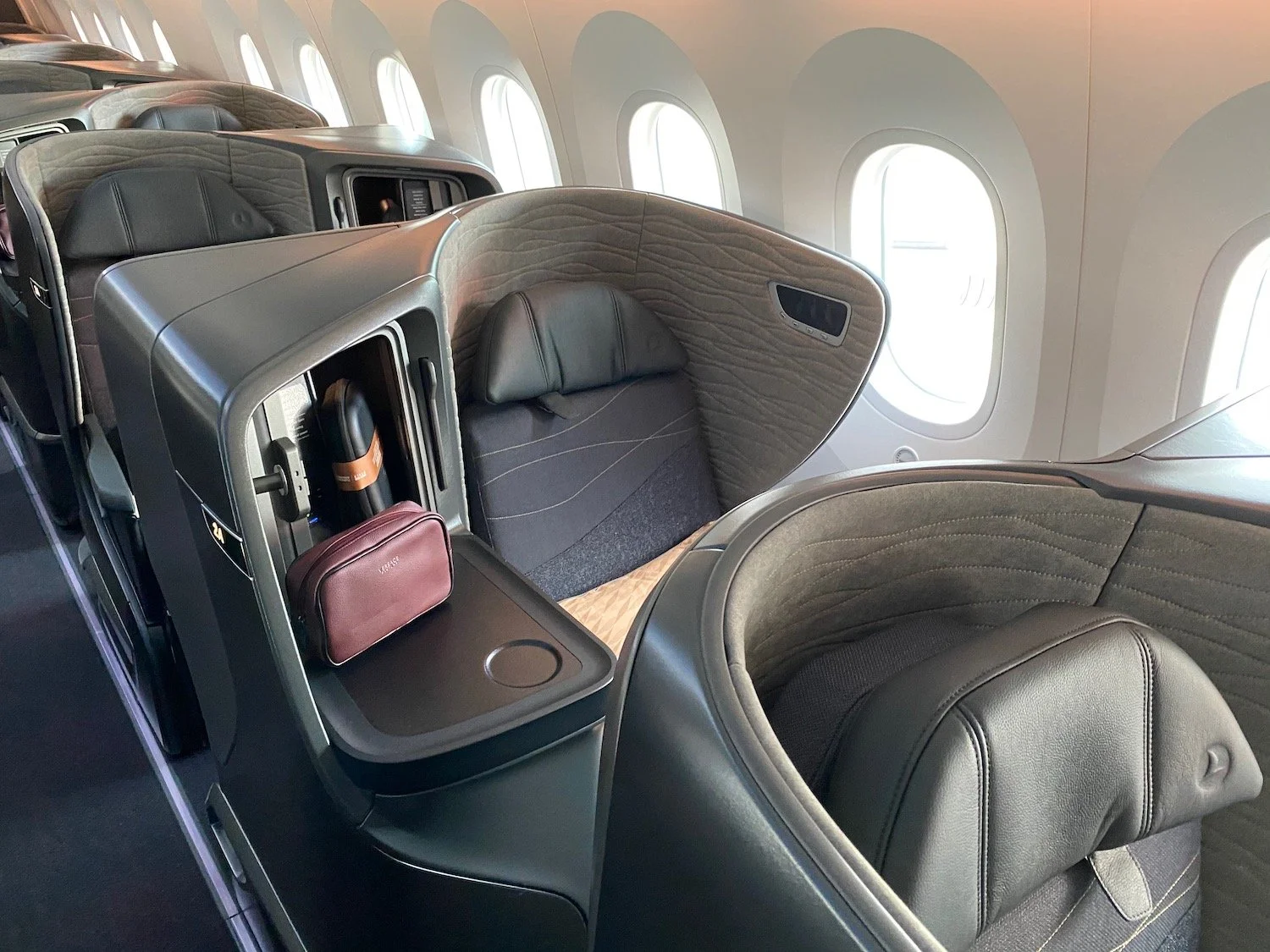Which airlines do and don’t charge fuel surcharges?
Fuel surcharges (also known as carrier-imposed surcharges, fuel fees, YQ/YR fees, or international/national surcharges) are additional charges introduced during periods of high fuel prices. While initially linked to fuel costs, they have evolved into a complex and opaque pricing element that airlines now impose independently of actual fuel prices. Many airlines refer to them using different terms, and the original justification for these surcharges has largely disappeared.
Fuel surcharges, like other price components of a ticket, are determined by the airline and vary based on route and direction. While some airlines impose no fuel surcharges, others, such as Lufthansa and British Airways, may charge over $1,000 on certain routes.
Book British Airways’ First Class without the heavy fuel surcharges (Source: justflybusiness.co.uk)
Although fuel surcharges might seem like a government-imposed tax, they are not. Instead, they are an airline-imposed fee retained by the carrier. For travelers booking with miles, this surcharge becomes a significant cost, often amounting to several hundred dollars per ticket.
How Can You Avoid Fuel Surcharges?
If you’re booking award flights with miles and want to avoid fuel surcharges, you have three main options:
1. Book flights with airlines that do not impose fuel surcharges.
2. Depart from countries that legally prohibit or cap fuel surcharges.
3. Use frequent flyer programs that do not pass on fuel surcharges, even if the airline imposes them.
How Can You Calculate Fuel Surcharges?
To break down the cost components of a flight ticket, the ITA Matrix (a flight search tool by Google) is highly recommended. This tool can help identify taxes, fees, and surcharges on a ticket.
The ITA Matrix will list all individual cost items for an airplane ticket (Source: ITA Matrix)
How Does the Passing on of Fuel Surcharges Work? – An Example
Whether an award flight booked with miles includes fuel surcharges depends on two factors:
1. Does the airline impose fuel surcharges?
2. Does the frequent flyer program pass them on?
For a one-way business class flight from Frankfurt to Boston, the surcharge amounts to EUR 593. Of this, EUR 445 is for fuel (listed as “international surcharge” and “environmental surcharge”), while EUR 148 accounts for actual taxes.
Booking the FRA-BOS LH flight through Lufthansa’s Miles&More program (Source: Miles&More)
If the same flight is booked through United’s MileagePlus, which does not pass on fuel surcharges, the total fees drop to EUR 144, saving hundreds of dollars.
Booking the FRA-BOS LH flight through United (Source: United)
Frequent Flyer Programs That Pass on Fuel Surcharges
Many frequent flyer programs pass on fuel surcharges in full if the airline imposes them. Examples include:
Miles & More (Lufthansa): Passes on all surcharges, even inflating them for certain partners like United.
British Airways Executive Club: Passes on all surcharges, including for partner flights like American Airlines.
Air France/KLM Flying Blue: Always passes on surcharges.
Turkish Airlines Miles&Smiles: Passes on surcharges.
Qatar Airways Privilege Club: Passes on surcharges.
Emirates Skywards: Passes on surcharges, which are particularly high.
Booking through Turkish Airlines means encountering high fuel surcharges (Source: Turkish Airlines)
Frequent Flyer Programs That Do Not Pass on Fuel Surcharges
Some programs shield travelers from fuel surcharges entirely, even if the airline imposes them. These include:
United MileagePlus
Avianca LifeMiles
American Airlines AAdvantage (exceptions for British Airways and Iberia flights)
Alaska Airlines Mileage Plan (exceptions for British Airways flights)
Air Canada Aeroplan
SAS EuroBonus
Booking through these programs can significantly reduce out-of-pocket costs on award flights.
Save significantly on fuel surcharges when booking Qatar Airways’ QSuite through American Advantage or Alaska Airlines Mileage Plan (Source: Qatar Airways)
Conclusion
Most major frequent flyer programs pass on fuel surcharges, especially European programs like Miles & More. However, U.S.-based programs, such as MileagePlus and AAdvantage, rarely do, making them excellent choices for avoiding these fees.
For European travelers, booking award flights with airlines that do not impose surcharges or departing from countries where such charges are restricted can also minimize costs.










This combo package includes the 39-page pdf report and the full data set the report is based on.
Includes:
1x Hyatt 2025 Report (PDF file)
1x Hyatt 2025 Data Set (Excel file)
The combo is provided as a file download and comes as a .zip file. Please make sure that you have an application on your computer that allows to unzip such a file.